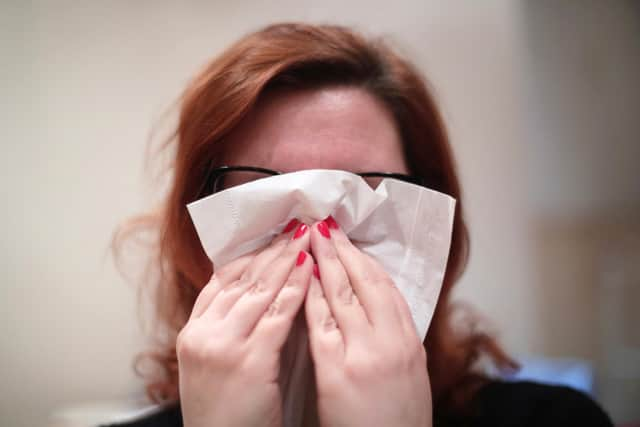Do I have Covid or hay fever? The different symptoms of allergies and coronavirus and if hay fever can give you a cough
and live on Freeview channel 276
With hay fever season well underway, it can be difficult to spot the difference between seasonal allergy symptoms and Covid-19.
From a sore throat to a cough that won't budge, there are many similarities between the two that can leave people wondering what they are suffering from.


Advertisement
Hide AdAdvertisement
Hide AdHere is how you can tell if you have hay fever or coronavirus.
What are the symptoms of Covid?
Symptoms of coronavirus are very similar to symptoms of other illnesses, such as colds and flu.
These include:
- a high temperature or shivering (chills)
- a new, continuous cough
- a loss or change to your sense of smell or taste
- shortness of breath
- feeling tired or exhausted
- an aching body
- a headache
- a sore throat
- a blocked or runny nose
- loss of appetite
- diarrhoea
- feeling sick or being sick
What are the symptoms of hay fever?
Hay fever signs and symptoms can include:
- runny nose and nasal congestion
- watery, itchy, red eyes
- sneezing
- cough
- itchy nose, roof of mouth or throat
- swollen, blue-colored skin under the eyes
- feeling like you constantly want to clear your throat
- fatigue
How can I tell the difference between hay fever and Covid?
The main difference between Covid and hay fever is a temperature - hay fever does not cause a high temperature.
Headaches and earaches are common with hay fever, but full body aches are more rare and are likely a symptom of Covid.
Advertisement
Hide AdAdvertisement
Hide AdBoth can cause a change or reduction in your sense of smell, however Covid is more likely to alter your sense of taste as well.
If you are unsure if your symptoms are Covid or hay fever, contact your GP and take a lateral flow test.
When is hay fever season?
Hay fever season is normally between late March and September, especially when it's warm, humid and windy.
This is when the pollen count is at its highest.
